
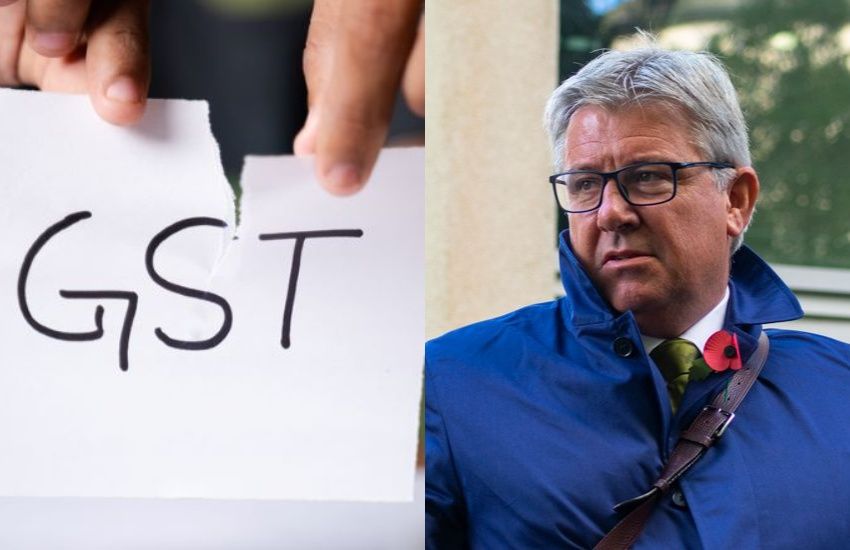

There is little sign of the Policy & Resources Committee overcoming widespread political opposition to a goods and services tax (GST).
The Committee’s treasury lead, Deputy Mark Helyar, pictured top, yesterday launched a weeks-long public campaign to persuade the Bailiwick to support the introduction of GST to address a projected shortfall in States’ finances of £85million a year ahead of another States’ debate on tax policy this summer.
The public campaign – ‘our island, our future’ – includes a new website which can be accessed HERE.
But Express’ enquiries of other deputies indicate that the Committee has made almost no headway in securing more political support for GST since a States’ debate in October when it asked for approval in principle and then had to withdraw the proposal when it became clear that it would be heavily defeated if pushed to a vote.
Deputies from across the political spectrum in the States last night told Express that their positions on GST continue to range from opposed to sceptical.
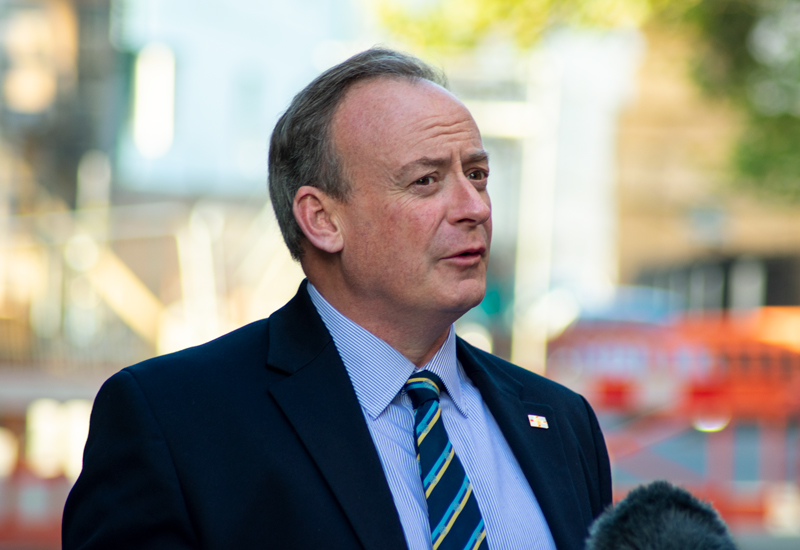
Pictured: Deputy Lyndon Trott has consistently voted against GST during his nearly 22 years in the States.
Deputy Lyndon Trott, who was elected in 2020 within the former Partnership of Independents, said he is “not in favour of GST”.
He said he would consider changing his position “only if there is majority public support for such a measure”, the chances of which he thinks are “very low”.
Deputy Bob Murray, a member of the Guernsey Party, which is led in the States by Deputy Helyar, said: “I am opposed to GST as a regressive means of generating further revenue. I don’t concur with the suggestions that it can be ameliorated in its impact upon those less able to pay.”
Deputy Simon Fairclough, who was elected independently of a party, said he is “not in favour of GST”.
“I said as much before the election and as yet nothing has changed my mind. I think there are ways of making it more equitable and that if it’s structured in the right way it doesn’t have to be regressive, but at this stage I still oppose it,” said Deputy Fairclough.
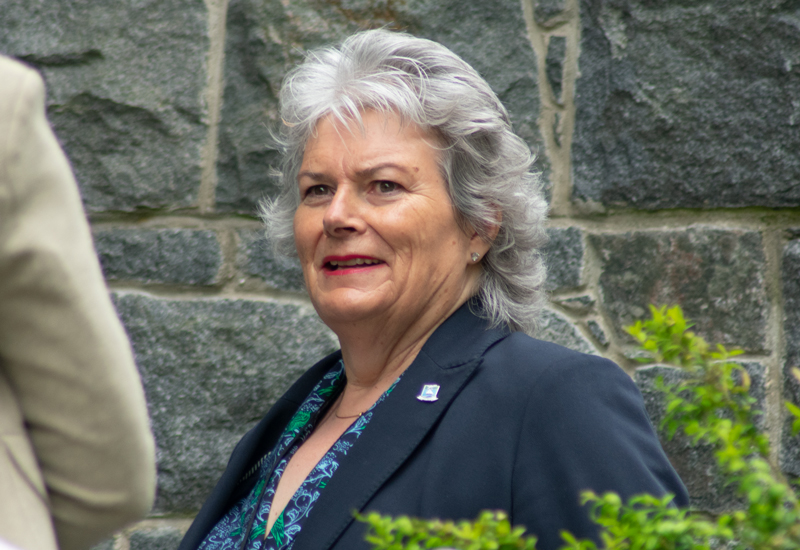
Pictured: Deputy Sue Aldwell said she had received a clear message about GST from voters while canvassing at the 2020 general election.
Deputy Sue Aldwell, also elected as an independent member, said that canvassing in the run up to the 2020 general election had persuaded her that the public “would not accept GST”.
Deputy Aldwell accepts that some form of additional taxation is “inevitable” but said “the Policy & Resources Committee will need to bring forward very strong arguments for me to consider a change in my stance on GST”.
Another member elected as an independent, Deputy Lester Queripel, said: “I spoke against and voted against GST when it was laid in front of the States last time on the grounds that it’s such a regressive tax. I see no reason to change my mind.”
Deputy Adrian Gabriel, also an independent candidate at the general election, is "opposed to the idea of a GST with no mitigating factors". He said there were already consumption taxes on a range of goods and cited fuel duty as an example of one which is "unpopular and drops down to the consumer, even if they aren't the first user".
However, Deputy Al Brouard, who was a member of the Partnership of Independents, said he is “becoming more open minded” about GST if accompanied – as the Policy & Resources Committee claims would be the case – with “serious mitigation to protect those on lower incomes”.
Deputy Brouard said that in the past he had favoured income tax rises in preference to GST but he could now see that under income tax rises "those who have substantial wealth in property or are living off capital do not contribute as I would perhaps wish".
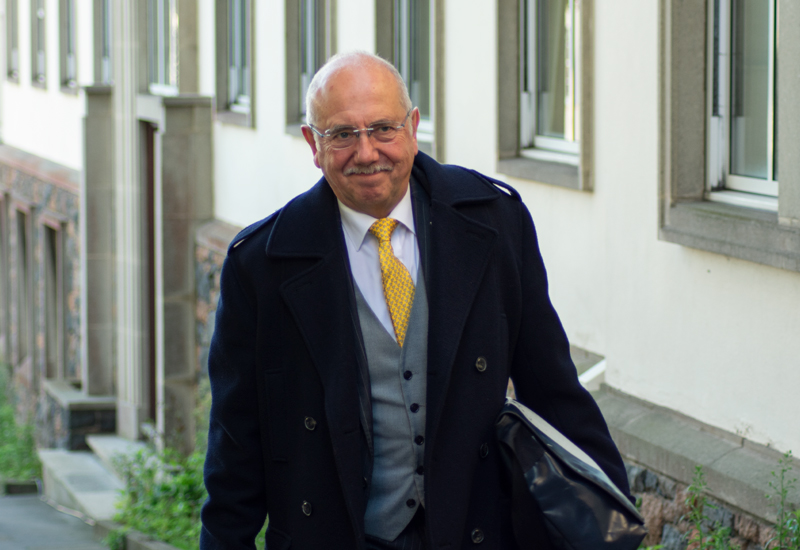
Pictured: Deputy Al Brouard was the only States' member who replied to Express indicating that he may be softening his previous opposition to GST.
Concerns about the effects of GST on the less affluent were raised repeatedly by deputies contacted by Express.
When the Policy & Resources Committee launched its public engagement campaign, Deputy Peter Roffey, who sits on a political group which advises the Committee on tax policy, said he was prepared to vote for GST because “modelling shows it can be done in a way which actually makes those on the lowest incomes in Guernsey better off compared to now”.
Deputy Yvonne Burford did not rule out supporting GST in the States but said “there is significant wealth inequality in Guernsey and narrowing that gap is a prerequisite before I consider supporting GST”.
Deputy Burford was pleased to see the Policy & Resources Committee going out to the public to speak about tax and spending but was sceptical that voters would be persuaded to back GST.
“I think if Policy & Resources is able to get the message across that those on lower incomes will be better off overall – if indeed that is the case due to mitigating measures such as lower social security contributions and a higher income tax personal allowance – then I think they may bring some more people on board,” said Deputy Burford.
“That said, there is a widely-held visceral dislike of GST and that may be very hard to overcome, even with information that shows lower earners may well be better off overall.
“There will also be resistance from business owners who understandably do not want the additional administration burden, so getting across details about the threshold below which registration is not necessary is important too.”

Pictured: Deputy Yvonne Burford spoke about "a widely-held visceral dislike of GST" in the Bailiwick.
Deputy Fairclough said “everyone will have different opinions and everyone will make up their own minds” and that “it is important to let people have their say and for the States to try to explain the rationale behind policy proposals”.
“Of course, it’s easier to oppose anything than stand for something – even more so when they are tax rises,” said Deputy Fairclough. “But this Assembly must make some difficult and unpopular decisions.”
Deputy Gabriel said: "I don’t envisage any public support for GST, even with the bitter alternatives and their consequences portrayed."

Pictured: Deputy Adrian Gabriel thinks that public engagement about GST is unlikely to shift public opposition.
The indications are that there is broader acceptance among deputies now than there has been for many years about the need for tax rises generally. But many of those spoken to by Express would prefer an increase in taxes on income or company profits or social security contributions than GST.
Deputy Trott said he “unequivocally accepted” that more tax would need to be raised to address the projected deficit in public finances and has “said so many times in the past”.
“I believe there is headroom with both social security contributions and income taxes,” said Deputy Trott.
“We are a couple of years off having the international clarity on corporate tax necessary to be certain what, if any, additional tax raising measures can be deployed.”
Deputy Burford said “there should be full consideration of what can be raised from corporates and high earners”.
Deputy Fairclough said he is “in favour of a restructuring of the system of social security contributions and, if necessary, income tax, but this has to be fair because the burden often falls on the same people – lower to middle income earners”.
“No tax increases are welcome, but I still believe all the options should be explored before GST can even be considered,” said Deputy Fairclough.
Deputy Gabriel said: "GST is a case of the worst, worst option. There are less worse options, such as income tax increases, but that tax pool is shrinking."
Inevitably, political opinion remains divided on whether the projected deficit in public finances should result in cutting current States’ expenditure or avoiding additional costs.
Deputy Fairclough said: “I still believe there are financial efficiency savings that could be made across the States and feel these have to be fully explored before we can ask or expect islanders to pay more.”

Pictured: Deputy Simon Fairclough wants to see further attempts to cut public spending before taxes are increased.
Deputy Burford said: “A large part of the projected annual deficit is due to a £60-odd million pounds a year transfer to the capital reserve and £10million a year to repay projected borrowing for capital projects.
“For example, one questions whether we should be spending well in excess of £100million reorganising secondary and post-16 education into another revenue-hungry four-school model - nearly two years' worth of capital spending on just one project.
“Of course, we do have pressing capital projects such as the harbours and we must maintain infrastructure, but it's well past time to abandon ideas such as extending the runway at a cost of £80million+ and pursuing unnecessarily expensive projects.”
Deputy Aldwell urged caution about remaining opportunities to cut spending.
“There has been ongoing streamlining of the civil service as well as the property portfolio and each Committee has looked at which services would need to be cut if budgets were reduced by 5% or 10%. It has been a stark reality check, as budgets are already lean and nobody wants to cut services – so some form of tax is inevitable," said Deputy Aldwell.
Deputy Murray wants to see a radically different approach to dealing with the “structural deficit” in public finances which he accepts is “not in question”.
“Simply put, that means we are already – and further predicted – to be spending beyond our means. Logically, then, you have to reduce that spending to a greater or lesser degree,” said Deputy Murray.
“There is understandably opposition to that course within the States on the mistaken assumption that as an island economy we can realistically expect the same level of government services that far larger communities can sustain. We cannot. If we want those levels of public services, then there is no alternative to higher taxation.
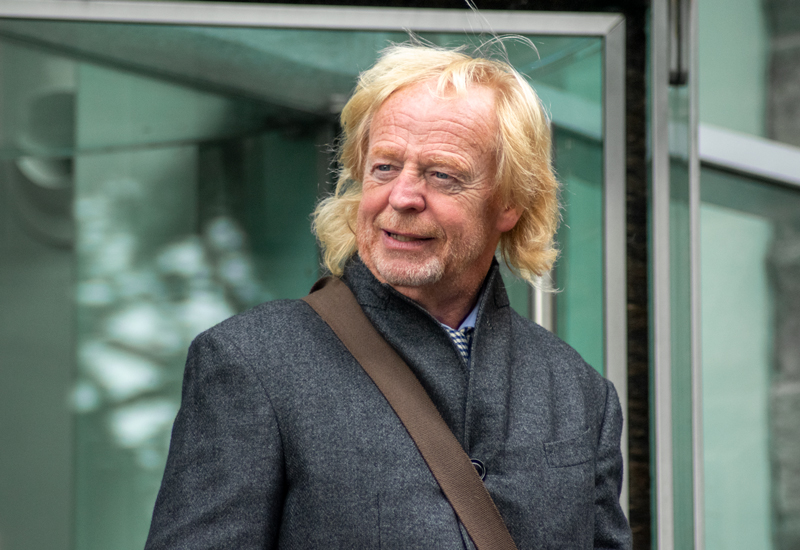
Pictured: Deputy Bob Murray is calling for a completely different approach to the projected deficit in States' finances.
“With a housing crisis, recovering from covid and dealing with the unknowns of Brexit, what is now required is an island economic plan before considering how taxes should be amended. There is simply no mechanism for that sort of essential horizon scanning. And even though I continually raise it, it does not seem to be gaining traction.
“What we do have is the Government Work Plan – a prioritised and costed wishlist almost exclusively inherited from previous States’ Assemblies. That is not a plan for the economy - it is a plan for spending.
“I can only hope that many of the new crop of deputies will come to realise that government’s historic lack of attention to a future island economic strategy, based on the unique circumstances and limitations we have as a Bailiwick, now requires urgent and professional attention.”
Comments
Comments on this story express the views of the commentator only, not Bailiwick Publishing. We are unable to guarantee the accuracy of any of those comments.